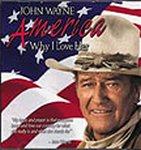- Posts: 3660
- Thank you received: 0
Learn Sarver Heart Center's Continuous Chest Compression CPR
- outdoor338
-
 Topic Author
Topic Author
- Mountain Legend
-

Less
More
26 Jan 2011 12:18 #1
by outdoor338
Every three days, more Americans die from sudden cardiac arrest than the number who died in the 9-11 attacks. You can lessen this recurring loss by learning Continuous Chest Compression CPR, a hands-only CPR method that doubles a person’s chance of surviving cardiac arrest. It’s easy and does not require mouth-to-mouth contact, making it more likely bystanders will try to help, and it was developed at the University of Arizona College of Medicine.
"This video is worth sharing," said Gordon A. Ewy, MD, director of the UA Sarver Heart Center and one of the research pioneers who developed this method.
http://medicine.arizona.edu/spotlight/l ... ession-cpr
"This video is worth sharing," said Gordon A. Ewy, MD, director of the UA Sarver Heart Center and one of the research pioneers who developed this method.
http://medicine.arizona.edu/spotlight/l ... ession-cpr
Please Log in or Create an account to join the conversation.
- JMC
-

- Mountain Legend
-

Less
More
- Posts: 4508
- Thank you received: 7
26 Jan 2011 12:36 #2
by JMC
Replied by JMC on topic Learn Sarver Heart Center's Continuous Chest Compression CPR
Everybody should see this, very important info, thanks for posting this . It should be stickied in the health area. This might be the most important post on 285b.
Please Log in or Create an account to join the conversation.
- mtntrekker
-

- User is blocked
-

Less
More
- Posts: 1485
- Thank you received: 0
26 Jan 2011 15:20 #3
by mtntrekker
bumper sticker - honk if you will pay my mortgage
"The problem with Socialism is that eventually you run out of other people's money." attributed to Margaret Thatcher
"A wise and frugal government, which shall leave men free to regulate their own pursuits of industry and improvement, and shall not take from the mouth of labor the bread it has earned - this is the sum of good government." Thomas Jefferson
Replied by mtntrekker on topic Learn Sarver Heart Center's Continuous Chest Compression CPR
ty for the link
i gather it was put in the courthouse for some discussion.
i like the idea in that i don't have to have a breathing mask with me before doing the breathing part of cpr on a stranger but it is some kind of workout if noone else is available to relieve. in all my training i was taught that once i start, even as a good samaritan, that i needed to continue until some medical help arrived. the exception being if you were in the middle of nowhere with very little expectation of medical help.
i can see if being beneficial when there are number of people available.
the hardest part to wrap my brain around is to continue even when someone is gasping. that is contrary to the traditional cpr that i learned.
also learning how to remove the hands after each compression while still working towards 100 compressions. maybe after practicing it for awhile it would become second nature like traditional cpr.
i gather it was put in the courthouse for some discussion.
i like the idea in that i don't have to have a breathing mask with me before doing the breathing part of cpr on a stranger but it is some kind of workout if noone else is available to relieve. in all my training i was taught that once i start, even as a good samaritan, that i needed to continue until some medical help arrived. the exception being if you were in the middle of nowhere with very little expectation of medical help.
i can see if being beneficial when there are number of people available.
the hardest part to wrap my brain around is to continue even when someone is gasping. that is contrary to the traditional cpr that i learned.
also learning how to remove the hands after each compression while still working towards 100 compressions. maybe after practicing it for awhile it would become second nature like traditional cpr.
bumper sticker - honk if you will pay my mortgage
"The problem with Socialism is that eventually you run out of other people's money." attributed to Margaret Thatcher
"A wise and frugal government, which shall leave men free to regulate their own pursuits of industry and improvement, and shall not take from the mouth of labor the bread it has earned - this is the sum of good government." Thomas Jefferson
Please Log in or Create an account to join the conversation.
Time to create page: 0.192 seconds





